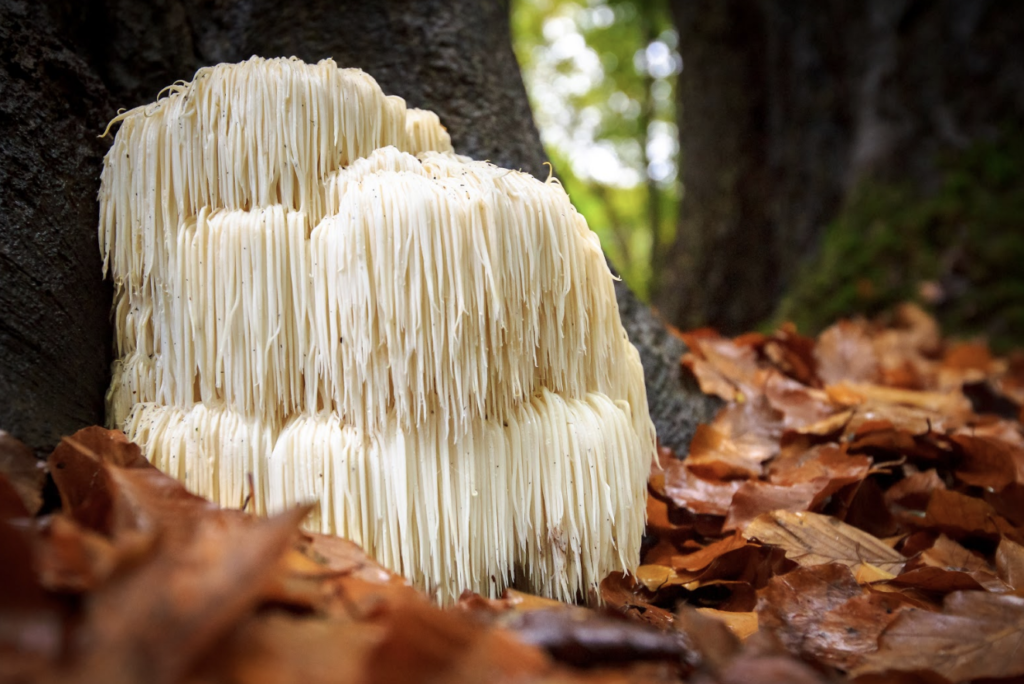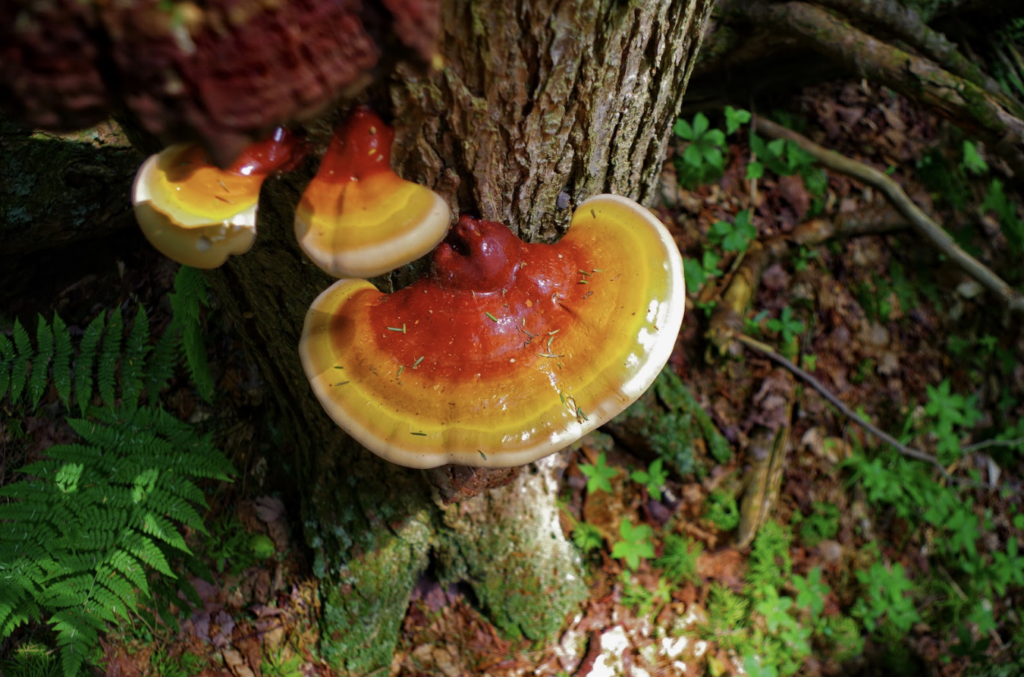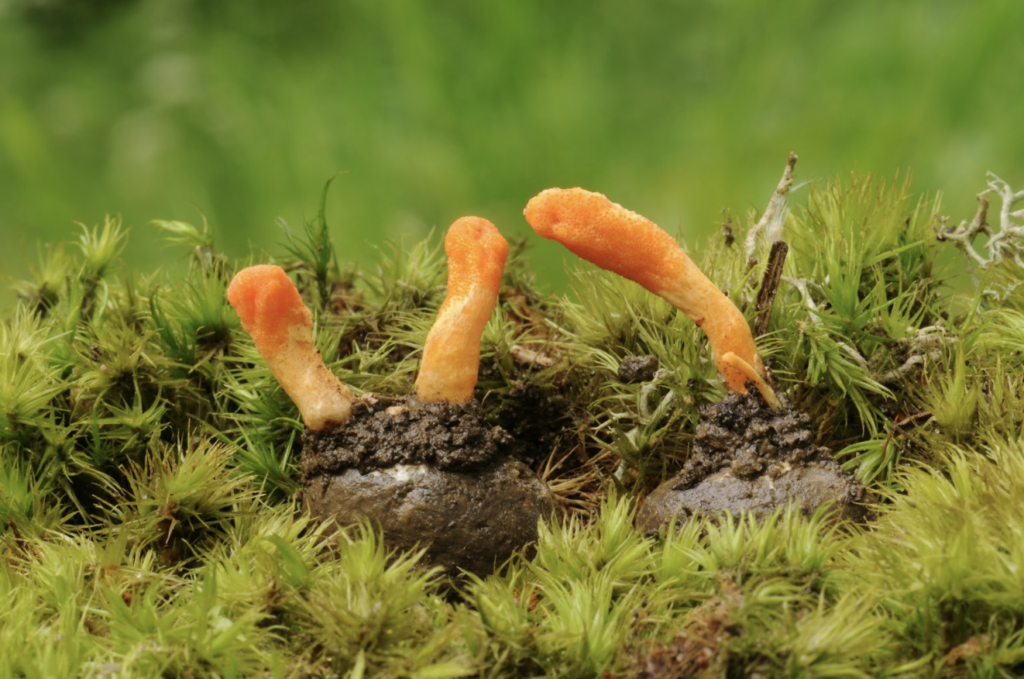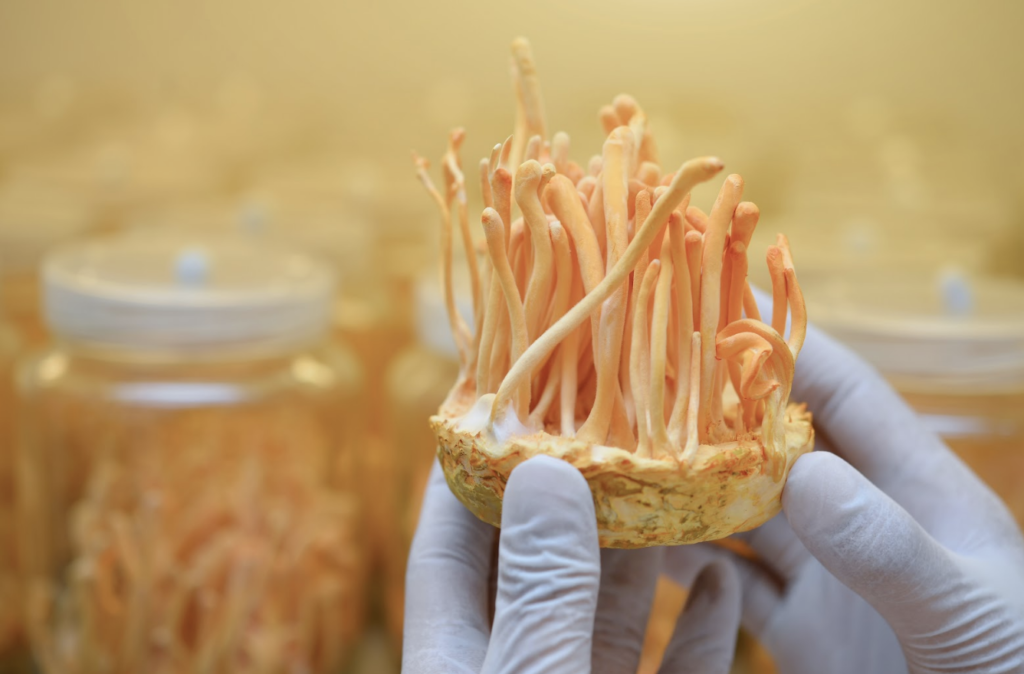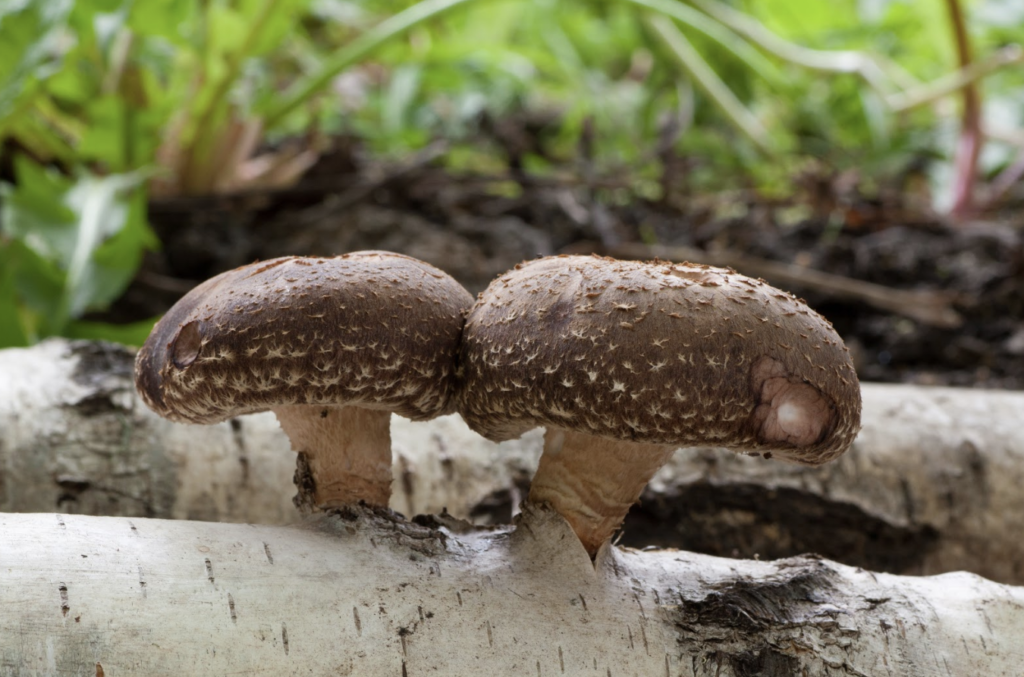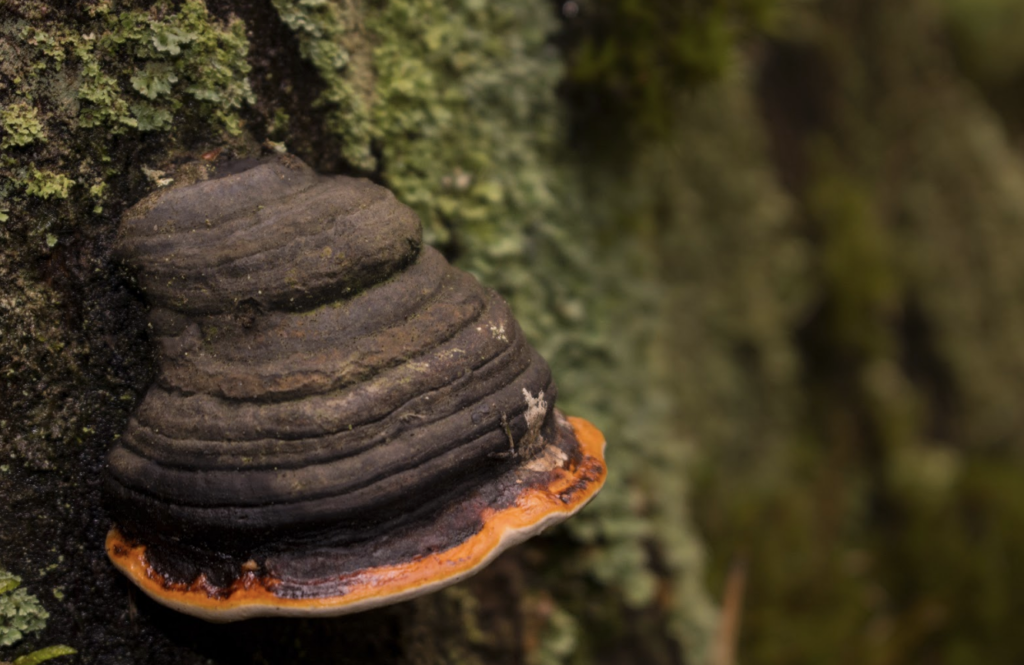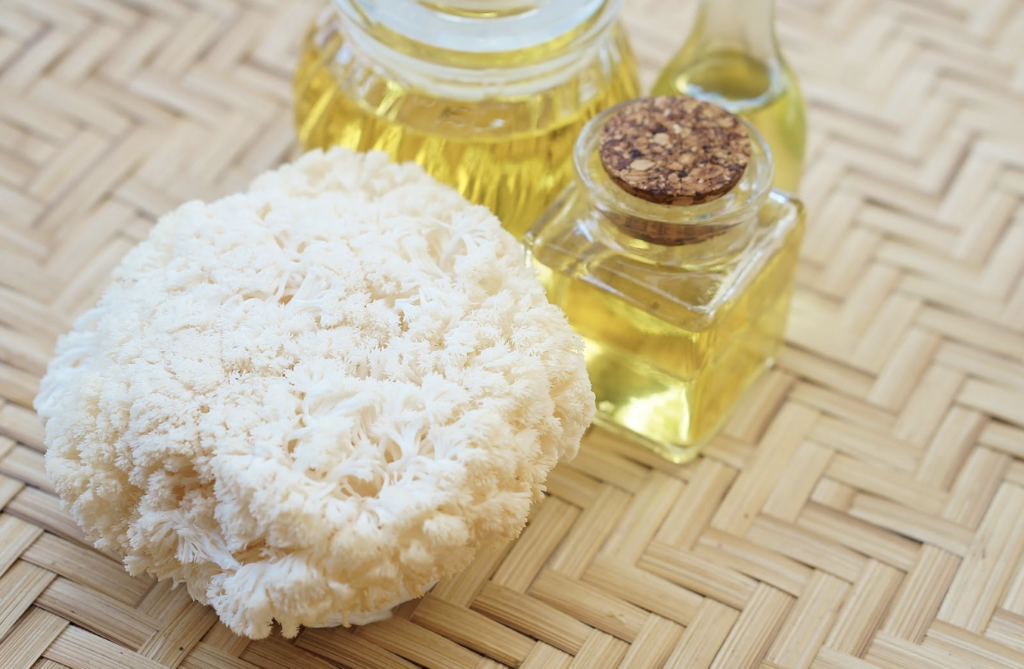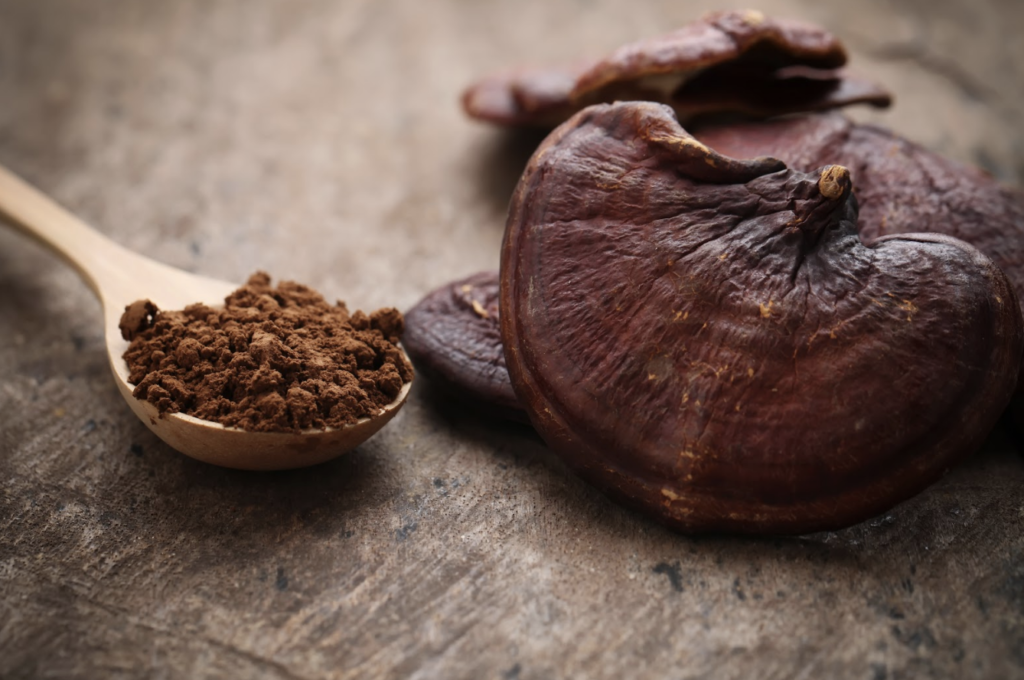We often consume mushrooms for their earthy goodness in culinary dishes. But that’s not the only thing they’re good for — medicinal mushrooms can be taken as a supplement for a myriad of health benefits.
From mental clarity to reducing anxiety, medicinal mushrooms can be extremely beneficial for your mind. These wild fungi are friendly to skin as well, showing the potential to prevent premature aging and reduce inflammation.
What are Medicinal Mushrooms?
Medicinal mushrooms have been around for thousands of years, in Japanese and traditional Chinese medicines, used to treat a number of ailments and diseases. They can be taken in powdered form, added to your morning coffee or smoothies, or in supplement capsule form.
There are more than 2,000 species of edible mushrooms. 300 of these are known to have therapeutic properties, each of them with their own set of health benefits. Benefits may include antioxidants, hormone balance, anti-inflammation and cancer treatment.
Mushrooms contain beta glucans, sugars found in the cell walls of fungi which comprise a group of glucose polysaccharides. Beta glucans are typically used for high cholesterol, diabetes, or cancer as they help to fight inflammation and aid the immune system.
Studies have shown that the species Ganoderma lucidum, or Reishi mushroom, may have anticancer properties. Some species of mushrooms, such as Coriolus versicolor (turkey tail mushrooms) may help prevent leukemia, while others show they may have antitumor properties in cancer patients.
White button mushrooms have been thought to protect against breast cancer, as they can inhibit aromatase activity and suppress breast cancer cell proliferation. Grifola frondosa, or maitake mushrooms, are linked to the suppression of breast cancer cells as well.
Shiitake mushrooms are beneficial for immune support, while other mushrooms help to regulate blood sugar. These are just some of the whole body benefits of medicinal mushrooms.
Brain Benefits of Medicinal Mushrooms
With their healing properties, medicinal mushrooms can be used on a daily basis in more practical ways. In addition to treating disease, mushrooms have a great effect on the mind, with the ability to improve cognitive support, treat depression or anxiety, and boost energy.
Mental Clarity and Cognitive Support
In terms of mental clarity and cognitive support, lion’s mane mushrooms, or Hericium erinaceus, shine through. This mushroom is ball-shaped with feather-like spines — it actually looks a little like a lion, which is how it got its name.
Like most mushrooms, it offers antioxidants and immune support, but lion’s mane can also help with brain fog.
Lion’s mane encourages the bioprotein nerve growth factor, or NGF. If there is an imbalance in NFG and myelin, a substance found in the central nervous system, neurological diseases like Alzheimers can occur.
This mushroom may also improve cognitive function and memory. Lion’s mane powder can be added to tea or coffee for a brain boost and some added mental clarity.
Mild cognitive impairment (MCI) is recognized as the first sign of Alzheimers. MCI may result in difficulty doing every day tasks. According to a cross-sectional study in Singapore, participants who consumed more than two portions of mushrooms per week had reduced odds of having MCI.
As inflammation is often a contributing factor of neurodegeneration, the antioxidants in mushrooms can help to reduce the inflammation. Mushrooms are also a source of vitamin D, which can protect brain function.
Treating Depression and Anxiety
Some mushrooms may have the ability to improve symptoms of depression and anxiety — reishi mushrooms in particular. The red, kidney-shaped shrooms are full of the compound triterpene, which boosts mood and promotes wound healing.
Reishi may have calming properties resulting in the reduction of anxiety and depression symptoms. Clinical trials in both rats and mice have shown improvement with antidepressant-like effects and improved sleep.
However, one particular study states: “Further studies are required to explain the neuropharmacological effects of G. lucidum and to identify its active ingredients that may affect seizure threshold, mood, or anxiety.”
Energy Boost
Cordyceps (or Cordyceps sinensis) is a fungus that can boost energy when you’re feeling low. Often referred to as the caterpillar fungus, it is an Asian mushroom that lives on caterpillars cocoons in high mountain regions of China.
Mushroom products like cordyceps can sometimes be hard to find and may be expensive. Cordyceps are difficult to harvest naturally, and is therefore often made synthetically in labs.
Cordyceps may be able to help you with energy, athletic performance, and muscle recovery. Those who exercise regularly may find it especially helpful, as it can enhance athletic performance by increasing production of adenosine triphosphate (ATP) and improving the way the body uses oxygen.
There is limited human research on cordyceps, so dosages and side effects have not been examined thoroughly. Like most medicinal mushrooms, cordyceps can be taken in powder or capsule form.
Skin Benefits of Medicinal Mushrooms
Medicinal mushrooms were originally used in skin care for their lightening benefits. Shiitake mushrooms contain kojic acid, a common skin lightener.
It has been discovered that wild mushrooms have more to offer in the skin care world than simply a lighter complexion. The antioxidant and antiinflammatory properties of medicinal mushrooms may help to strengthen, hydrate, and care for skin.
Antioxidants
We already know that medicinal mushrooms are full of antioxidants, and antioxidants do wonders for the skin, fighting against free radical damage.
When there are too many free radicals in the body, cell damage occurs, which can lead to damaged and unhealthy skin. Antioxidants can help to prevent oxidative stress and sunburn, repair skin, and brighten skin tone.
Chaga mushrooms, or Inonotus obliquus, are an excellent source of antioxidants. The fungus resembles burnt charcoal and can be found in both Asia and North America. Chaga’s antioxidant properties help to prevent oxidative stress and inflammation.
Another type of mushroom containing antioxidants is Lentinula edodes, or shiitake, a fungus known for improving immune function.
Reducing Inflammation
When skin inflammation occurs due to an immune response, it can be either an allergic reaction or infection. Rashes, redness, and blistering are all forms of skin inflammation. Medicinal mushrooms often have anti-inflammatory properties that can aid these issues. Lion’s mane contains antioxidants and is thought to have these same anti-inflammatory properties.
A 2011 study on rats found topical application of lion’s mane extract was linked to faster wound healing. Another study found that the anti-inflammatory compounds in mushrooms can be used to reduce skin sensitivity and treat premature skin aging and wrinkles.
Additionally, mushroom dietary supplements are rich in B complex vitamins, which help to prevent abnormal pigment production and improve hydration of the skin.
Anti-Aging Properties
Oxidative stress can cause aging of the skin in the form of wrinkles and sagging skin. Spending too much time unprotected in the sun can create too many free radicals that contribute to aging.
Reishi has been linked to antiaging. One particular study on the emerging roles of reishi in anti-aging states that reishi mushroom extracts “have definite anti-aging properties and they exert their anti-aging effects mainly through anti-oxidation, immunomodulation and anti-neurodegeneration.”
Other medicinal mushroom extracts with antioxidants, such as chaga, can also help protect skin from oxidative stress that leads to aging.
Before taking mushroom supplements, make sure to consult your doctor. If you are pregnant or breastfeeding, have low blood pressure or certain autoimmune disorders, you may want to be careful with these supplements. Medicinal mushrooms are typically taken internally, but sometimes are used topically. Both can have an impact on skin health.
In Summary
- Of the thousands of species of mushrooms, hundreds offer medicinal or therapeutic properties.
- Medicinal mushrooms contain vitamins and compounds beneficial in the healing of several diseases and health issues from diabetes to cancer. Other benefits of medicinal mushrooms include the improvement of skin and mental health.
- Medicinal mushrooms such as lion’s mane have the ability to improve mental clarity and cognitive support, while the reishi mushroom might reduce anxiety and depression.
- For those looking for a boost of energy, cordyceps may be one answer. This mushroom is able to enhance athletic performance.
- As far as skin care, antioxidants in some fungi, such as chaga mushrooms, fight against free radical damage of the skin.
- Anti-inflammatory properties in lion’s mane and other mushrooms reduce skin sensitivity and chaga and reishi protect against aging of the skin.
Sources
- Jin, X., Beguerie, J. R., Sze, D. M. Y., & Chan, G. C. (2012). Ganoderma lucidum (Reishi mushroom) for cancer treatment. Cochrane Database of Systematic Reviews, (6). Abstract: https://www.ncbi.nlm.nih.gov/pubmed/22696372?dopt=Abstract
- Hsieh, T. C., Kunicki, J., Darzynkiewicz, Z., & Wu, J. M. (2002). Effects of extracts of Coriolus versicolor (I’m-Yunity™) on cell-cycle progression and expression of interleukins-1β,-6, and-8 in Promyelocytic HL-60 leukemic cells and mitogenically stimulated and nonstimulated human lymphocytes. The Journal of Alternative & Complementary Medicine, 8(5), 591-602. Abstract: https://www.ncbi.nlm.nih.gov/pubmed/12470440
- Wu, H. T., Lu, F. H., Su, Y. C., Ou, H. Y., Hung, H. C., Wu, J. S., … & Chang, C. J. (2014). In vivo and in vitro anti-tumor effects of fungal extracts. Molecules, 19(2), 2546-2556. Abstract: https://www.ncbi.nlm.nih.gov/pubmed/24566320
- Grube, B. J., Eng, E. T., Kao, Y. C., Kwon, A., & Chen, S. (2001). White button mushroom phytochemicals inhibit aromatase activity and breast cancer cell proliferation. The Journal of nutrition, 131(12), 3288-3293. Abstract: https://www.ncbi.nlm.nih.gov/pubmed/11739882
- Alonso, E. N., Orozco, M., Nieto, A. E., & Balogh, G. A. (2013). Genes related to suppression of malignant phenotype induced by Maitake D-Fraction in breast cancer cells. Journal of medicinal food, 16(7), 602-617. Abstract: https://europepmc.org/articles/pmc3719462
- Kiho, T., YAMANE, A., HUI, J., USUI, S., & UKAI, S. (1996). Polysaccharides in fungi. XXXVI. Hypoglycemic activity of a polysaccharide (CS-F30) from the cultural mycelium of Cordyceps sinensis and its effect on glucose metabolism in mouse liver. Biological and Pharmaceutical Bulletin, 19(2), 294-296. Abstract: https://www.ncbi.nlm.nih.gov/pubmed/8850325
- Lai, P. L., Naidu, M., Sabaratnam, V., Wong, K. H., David, R. P., Kuppusamy, U. R., … & Malek, S. N. A. (2013). Neurotrophic properties of the Lion’s mane medicinal mushroom, Hericium erinaceus (Higher Basidiomycetes) from Malaysia. International Journal of Medicinal Mushrooms, 15(6). Abstract: https://www.ncbi.nlm.nih.gov/pubmed/24266378
- Mori, K., Inatomi, S., Ouchi, K., Azumi, Y., & Tuchida, T. (2009). Improving effects of the mushroom Yamabushitake (Hericium erinaceus) on mild cognitive impairment: a double‐blind placebo‐controlled clinical trial. Phytotherapy Research: An International Journal Devoted to Pharmacological and Toxicological Evaluation of Natural Product Derivatives, 23(3), 367-372. Abstract: https://www.ncbi.nlm.nih.gov/pubmed/18844328
- Feng, L., Cheah, I. K. M., Ng, M. M. X., Li, J., Chan, S. M., Lim, S. L., … & Halliwell, B. (2019). The association between mushroom consumption and mild cognitive impairment: a community-based cross-sectional study in Singapore. Journal of Alzheimer’s Disease, (Preprint), 1-7. Abstract: https://www.ncbi.nlm.nih.gov/pubmed/30775990
- Spence, R. D., & Voskuhl, R. R. (2012). Neuroprotective effects of estrogens and androgens in CNS inflammation and neurodegeneration. Frontiers in neuroendocrinology, 33(1), 105-115. Abstract: https://www.ncbi.nlm.nih.gov/pubmed/28872464
- Cardwell, G., Bornman, J., James, A., & Black, L. (2018). A review of mushrooms as a potential source of dietary vitamin D. Nutrients, 10(10), 1498. Full Text: https://www.ncbi.nlm.nih.gov/pmc/articles/PMC6213178/
- Eyles, D. W., Burne, T. H., & McGrath, J. J. (2013). Vitamin D, effects on brain development, adult brain function and the links between low levels of vitamin D and neuropsychiatric disease. Frontiers in neuroendocrinology, 34(1), 47-64.Abstract: https://www.ncbi.nlm.nih.gov/pubmed/22796576
- Agra, L. C., Ferro, J. N., Barbosa, F. T., & Barreto, E. (2015). Triterpenes with healing activity: A systematic review. Journal of Dermatological Treatment, 26(5), 465-470. Abstract: https://www.ncbi.nlm.nih.gov/pubmed/25893368
- Matsuzaki, H., Shimizu, Y., Iwata, N., Kamiuchi, S., Suzuki, F., Iizuka, H., … & Okazaki, M. (2013). Antidepressant-like effects of a water-soluble extract from the culture medium of Ganoderma lucidum mycelia in rats. BMC complementary and alternative medicine, 13(1), 370. Full Text: https://bmccomplementalternmed.biomedcentral.com/articles/10.1186/1472-6882-13-370
- Cui, X. Y., Cui, S. Y., Zhang, J., Wang, Z. J., Yu, B., Sheng, Z. F., … & Zhang, Y. H. (2012). Extract of Ganoderma lucidum prolongs sleep time in rats. Journal of ethnopharmacology, 139(3), 796-800. Abstract: https://www.ncbi.nlm.nih.gov/pubmed/22207209
- Socala, K., Nieoczym, D., Grzywnowicz, K., Stefaniuk, D., & Wlaz, P. (2015). Evaluation of anticonvulsant, antidepressant-, and anxiolytic-like effects of an aqueous extract from cultured mycelia of the Lingzhi or Reishi medicinal mushroom Ganoderma lucidum (Higher Basidiomycetes) in mice. International journal of medicinal mushrooms, 17(3). Abstract: https://www.ncbi.nlm.nih.gov/pubmed/25954905
- Chen, C. Y., Hou, C. W., Bernard, J. R., Chen, C. C., Hung, T. C., Cheng, L. L., … & Kuo, C. H. (2014). Rhodiola crenulata-and Cordyceps sinensis-based supplement boosts aerobic exercise performance after short-term high altitude training. High altitude medicine & biology, 15(3), 371-379. Abstract: https://www.ncbi.nlm.nih.gov/pmc/articles/PMC4174424/
- Tuli, H. S., Sandhu, S. S., & Sharma, A. K. (2014). Pharmacological and therapeutic potential of Cordyceps with special reference to Cordycepin. 3 Biotech, 4(1), 1-12. Full Text: https://www.ncbi.nlm.nih.gov/pmc/articles/PMC3909570/
- Pham-Huy, L. A., He, H., & Pham-Huy, C. (2008). Free radicals, antioxidants in disease and health. International journal of biomedical science: IJBS, 4(2), 89. Full Text: https://www.ncbi.nlm.nih.gov/pmc/articles/PMC3614697/
- Wang, M., Meng, X. Y., Le Yang, R., Qin, T., Wang, X. Y., Zhang, K. Y., … & Xue, F. Q. (2012). Cordyceps militaris polysaccharides can enhance the immunity and antioxidation activity in immunosuppressed mice. Carbohydrate polymers, 89(2), 461-466. Full Text: https://www.ncbi.nlm.nih.gov/pubmed/24750744
- Dai, X., Stanilka, J. M., Rowe, C. A., Esteves, E. A., Nieves Jr, C., Spaiser, S. J., … & Percival, S. S. (2015). Consuming Lentinula edodes (Shiitake) mushrooms daily improves human immunity: A randomized dietary intervention in healthy young adults. Journal of the American College of Nutrition, 34(6), 478-487. Abstract: https://www.ncbi.nlm.nih.gov/pubmed/25866155
- Mori, K., Ouchi, K., & Hirasawa, N. (2015). The anti-inflammatory effects of lion’s mane culinary-medicinal mushroom, hericium erinaceus (higher basidiomycetes) in a coculture system of 3t3-L1 adipocytes and raw264 macrophages. International journal of medicinal mushrooms, 17(7). Abstract: https://www.ncbi.nlm.nih.gov/pubmed/26559695
- Abdulla, M. A., Fard, A. A., Sabaratnam, V., Wong, K. H., Kuppusamy, U. R., Abdullah, N., & Ismail, S. (2011). Potential activity of aqueous extract of culinary-medicinal Lion’s Mane mushroom, Hericium erinaceus (Bull.: Fr.) Pers.(Aphyllophoromycetideae) in accelerating wound healing in rats. International journal of medicinal mushrooms, 13(1). Abstract: https://www.ncbi.nlm.nih.gov/pubmed/22135902
- Lee, K. E., Park, J. E., Jung, E., Ryu, J., Kim, Y. J., Youm, J. K., & Kang, S. (2016). A study of facial wrinkles improvement effect of veratric acid from cauliflower mushroom through photo-protective mechanisms against UVB irradiation. Archives of dermatological research, 308(3), 183-192. Abstract: https://www.ncbi.nlm.nih.gov/pubmed/26914455
- Wang, J., Cao, B., Zhao, H., & Feng, J. (2017). Emerging roles of Ganoderma Lucidum in anti-aging. Aging and disease, 8(6), 691. Full Text: https://www.ncbi.nlm.nih.gov/pmc/articles/PMC5758346/


